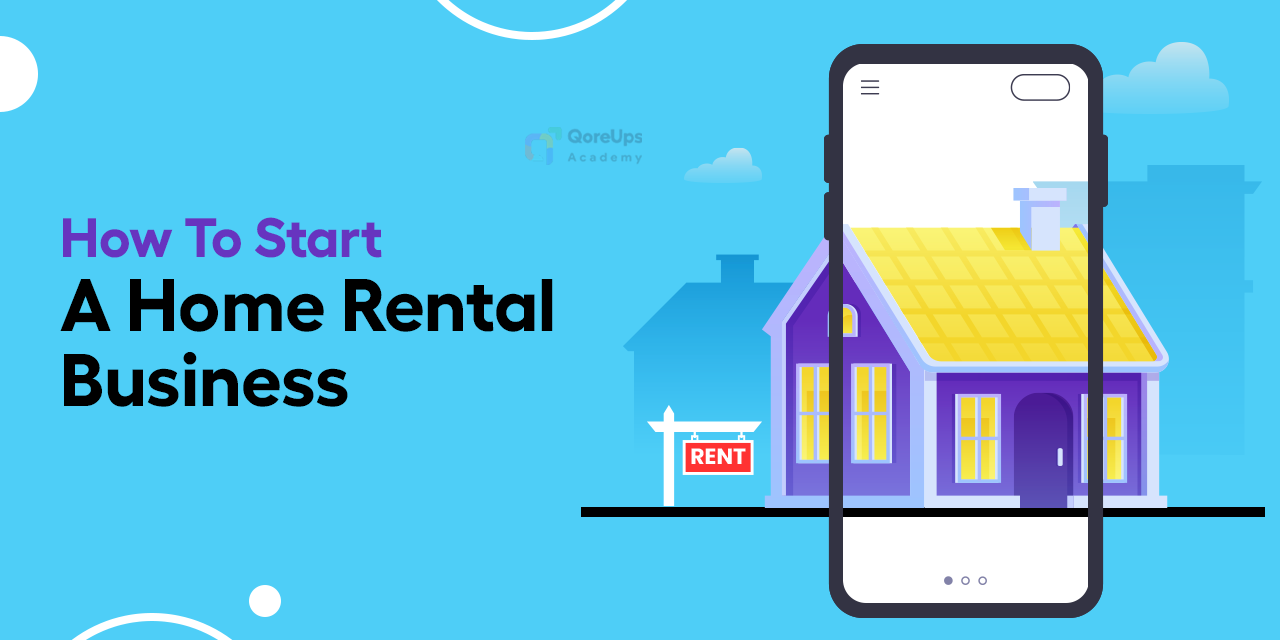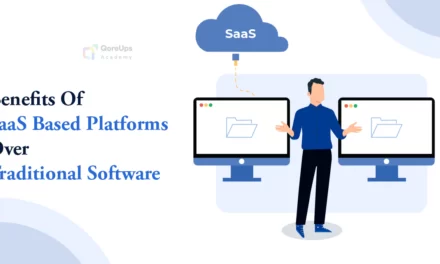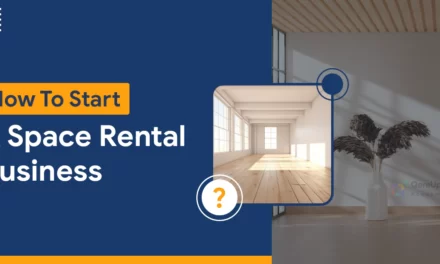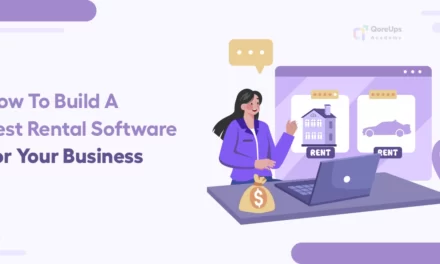The home rental business has surged in popularity over the past few years.
Whether you’re thinking of renting out your own home or acquiring multiple properties, entering the home rental business can provide you with a consistent revenue stream and long-term financial growth.
The rise of platforms like Airbnb and Vrbo has made it easier for anyone to join the market, even with minimal experience.
But, how to start a rental business for home space in 2025?
Worry not! This detailed guide is for you.
We’ll walk you through the steps of starting a home rental business, from initial research to long-term management, helping you make informed decisions every step of the way.
Introduction To Home Rental Business
A home rental business is one where property owners rent out residential spaces to tenants for either short-term or long-term stays.
In this rental business model, you can rent out residential spaces like:
- Single-Family Homes – Stand-alone houses designed for one family.
- Apartments – Units within larger buildings or complexes, often leased or rented.
- Vacation Homes – Properties primarily used for vacations or rented out short-term.
- Condominiums (Condos) – Individually owned units within a shared building or complex.
- Townhouses – Multi-level homes sharing walls with neighboring units, but each with its own entrance.
- Duplexes/Triplexes – Homes divided into two or three separate living units, typically with separate entrances.
- Lofts – Large, open-plan units, often in repurposed commercial or industrial buildings.
- Mobile Homes – Manufactured homes that can be transported and set up on different plots of land.
- Co-living Spaces – Shared residential properties where tenants share communal spaces while having their own private rooms.
- Tiny Homes – Small, compact homes focused on minimalism, often mobile or built on small plots.
This can range from leasing out an entire home for a year to offering a vacation home for short stays through a platform like Airbnb.
Types of Home Rentals
- Long-term rentals typically involve leases of six months or more and target tenants like families or professionals who need stable housing.
- Short-term rentals focus on shorter stays, from a few days to a few months, often targeting tourists, business travelers, or individuals needing temporary housing.
Key Components of a Home Rental Business
- Property acquisition: Finding and securing the right property is the foundation of your business.
- Management: This includes the upkeep of the property, communication with tenants, handling payments, and ensuring legal compliance.
- Marketing: Attracting tenants through effective listing, pricing, and advertising strategies is crucial for occupancy rates.
How Profitable Is Building A Home Rental Business In 2025?
Starting a home rental business is a great business idea. But is it profitable?
When considering the profitability of a home rental business, it’s essential to look at various statistics that reflect revenue, market growth, user base, and potential profits.
Market Growth
- The global vacation rental market was valued at $87.09 billion in 2021 and is expected to reach approximately $112.76 billion by 2027, growing at a CAGR of about 4.8% from 2022 to 2027.
- In the United States, the vacation rental market is projected to grow from $14.7 billion in 2022 to $20.5 billion by 2026, reflecting a CAGR of 8.7%.
User Base
- In 2023, approximately 39% of Americans are estimated to be renting their homes, which translates to around 44 million rental households. This growing number of renters presents a significant opportunity for home rental businesses.
- As of 2023, Airbnb reported over 4 million hosts and more than 1.5 billion guest arrivals, indicating a massive user base engaging in home rentals.
Revenue and Profits
- The average rental income for a single-family rental home in the U.S. is around $1,500 per month, translating to an annual gross revenue of approximately $18,000.
- Landlords can expect net profit margins of 10% to 40%, depending on various factors, such as location, property management efficiency, and market conditions.
- Many property owners can expect a return on investment (ROI) of about 8% to 12% annually, which includes rental income and appreciation.
Long-Term Trends
- The short-term rental market is growing rapidly, with reports suggesting that this segment could surpass $25 billion by 2025.
- Following the COVID-19 pandemic, the home rental market has seen a resurgence, with travelers prioritizing short-term rentals as a safer alternative to traditional hotels. This has led to increased booking rates and higher revenue potential for rental property owners.
Overall, building a home rental business can be quite profitable, especially with the continued growth of the rental market and increasing demand from consumers.

Can I Start A Home Rental Business With No Experience?
Yes, you absolutely can!
Many successful home rental businesses have been started by people with little to no prior experience in real estate or property management.
However, it requires careful planning, learning, and dedication to succeed. Let’s see them.
Start with Research
Understand the rental market in your area, local laws, and property management basics.
Knowledge is your best asset when starting out, so invest time in learning through online courses, real estate books, or networking with experienced property owners.
Begin Small and Scale Gradually
Avoid jumping into large investments. Start with one property or even rent out a room in your own home.
Simply first start by building a MVP.
This will allow you to gain experience in managing tenants, handling maintenance, and navigating financials before expanding your portfolio.
Leverage Rental Management Software
Use property management tools to simplify your tasks like listing, tenant screening, rent collection, and maintenance.
Platforms like QMarket or others can help you manage the business efficiently, even if you lack prior experience.
Understand Financing Options
If you don’t have funds to purchase a rental property, there are alternative financing options:
- Owner financing: The seller allows you to make payments directly to them.
- Partnerships: Team up with an investor who brings the capital while you manage the business.
- Rent-to-own: You rent a property with an option to buy it later, giving you time to gather funds.
These strategies can help you enter the market without needing large upfront capital.
Prioritize Tenant Experience
“Happy Tenants = Successful Rental Business”
Make sure your property is well-maintained, be responsive to tenant needs, and build a reputation for reliability and professionalism.
Good tenant relationships lead to long-term leases and fewer vacancies.
Even without a background in real estate, it’s possible to learn and grow a successful home rental business by leveraging available tools and services.

How To Start A Home Rental Business In 14 Steps
Step 1: Conduct Market Research
Market research is key to identifying your target customers, understanding demand, and ensuring your property is located in a profitable area.
Analyze the local economy, job market, population growth, and tourism statistics (if applicable) to determine the best locations for your rental property.
Assess rental prices in the area and evaluate vacancy rates to understand the competition and demand.
Step 2: Analyze Your Competition
Look at other rental properties in your area to understand their pricing, features, and occupancy rates.
Identify what makes them successful and look for opportunities where you can stand out, whether by offering better amenities, more flexible rental terms, or better customer service.
Step 3: Prepare A Home Rental Business Plan
Your business plan is the roadmap for your home rental business. Include the following:
- Executive summary: An overview of your business and goals.
- Market analysis: The results of your market and competition research.
- Property acquisition: How you plan to find and buy rental properties.
- Revenue model: Details on how you’ll make money, such as rental income and additional services. Decide the right marketplace revenue model for your business.
- Marketing plan: Strategies for attracting tenants or guests.
- Financial projections: Expected costs, revenues, and profit margins.
Step 4: Choose a Business Structure
Selecting the right legal structure is crucial for tax and liability purposes. Options include:
- Sole Proprietorship: Easy to set up but leaves you personally liable.
- Limited Liability Company (LLC): Offers liability protection and flexibility in taxes.
- Corporation: More complex but provides the highest level of protection from personal liability.
Consult a legal expert or accountant to choose the structure that best fits your needs.
Step 5: Get License and Permits
Check with local authorities to understand the licensing and permit requirements for operating a rental business in your area. You may need:
- Business licenses: Required to operate legally.
- Short-term rental permits: Necessary for vacation rentals in many cities.
- Health and safety inspections: Some areas require your property to meet certain safety standards.
Step 6: Register Your Home Rental Business
Register your home rental business with your state or local government.
This step is necessary to operate legally and may involve registering your business name and obtaining an EIN (Employer Identification Number) for tax purposes.
Step 7: Secure Financing
If you don’t have the cash on hand to buy a property outright, you’ll need to explore financing options. These include:
- Conventional mortgages: Standard loans from banks or credit unions.
- Real estate investment loans: Loans tailored for purchasing investment properties.
- Private investors: Partner with an investor who provides the capital while you manage the business.
Step 8: Find and Acquire Rental Properties
Start by scouting potential rental properties in areas with strong rental demand.
Consider the property’s proximity to schools, businesses, or tourist attractions, as these factors will affect its desirability.
Look at both the condition and value of the property. Decide whether you want to focus on short-term vacation rentals, long-term leases, or a mix of both.
Step 9: Prepare Your Rental Property
Before listing your property, it needs to be fully prepared for tenants or guests. Ensure the following:
- Maintenance and repairs: Make sure the property is in top condition.
- Furnishing: Depending on your market, you may need to furnish the property especially true for vacation rentals.
- Amenities: Offer competitive amenities like Wi-Fi, parking, or laundry services.
Step 10: Build A Home Rental Software
A home rental software will allow you to list your properties, manage bookings, and communicate with tenants or guests.
Platforms like QoreUps offer a SaaS-enabled solution that lets you build your own rental marketplace, making it easier to manage properties, market them effectively, and streamline administrative tasks.
Step 11: List Your Property
Create an irresistible listing that draws in potential renters.
- Utilize high-quality photos that showcase your property’s key features to attract more potential renters. Emphasize any standout elements, such as a stunning view, a modern kitchen, or inviting outdoor space.
- Write clear, detailed descriptions that appeal to your target audience. Include key details like several rooms, amenities, nearby attractions, and house rules.
Step 12: Launch Your Home Rental Platform
Make your website and listings public. Ensure all features, such as booking systems and payment gateways, are functioning correctly.
Regularly test the website to ensure smooth operation and address any technical issues promptly.
Step 13: Market Your Home Rental Business
Invest in SEO for your website to increase organic traffic. Utilize social media platforms for promotions and engage with potential customers.
Partner with local businesses to cross-promote. Attend community events to raise awareness of your rental properties.
Step 14: Monitor and Analyze Your Business Performance
Use analytics tools to monitor traffic, booking rates, and customer feedback. Track expenses and revenue to ensure profitability.
Based on your performance data, refine your marketing strategies, property offerings, and pricing to enhance profitability and occupancy rates.

Build Your Best Home Rental Business With QoreUps
A powerful tool like QoreUps can make the process of starting a home rental business much smoother.
By offering a SaaS rental marketplace builder, QoreUps provides you with the ability to build, manage, and grow your rental business without needing deep technical skills.
Their platform is scalable and adaptable, ensuring that your business can evolve with the growing rental market.

How QoreUps can help you build the best home rental business:
User-Friendly Interface
QoreUps offers an intuitive interface that simplifies the process of setting up and managing your home rental platform.
Even without prior technical expertise, you can easily create a professional-looking rental marketplace, customize it to fit your brand, and manage all your listings in one place.
Comprehensive Features
From property listings and booking management to payment processing and customer communication, QoreUps includes everything you need to run a successful home rental business.
Features like automated booking, availability tracking, and secure payment gateways save time and reduce manual tasks.
Cost-Effective Solution
Building a custom rental marketplace from scratch can be expensive and time-consuming.
With QoreUps, you get a ready-to-use solution that’s far more affordable than custom development, allowing you to focus your budget on growing your business.
Scalability
QoreUps is designed to grow with your home rental business.
Whether you’re managing one property or a portfolio of hundreds, the platform scales effortlessly to accommodate more listings, users, and transactions as your business expands.
Robust Support and Security
Running a home rental business involves handling sensitive customer information and financial transactions.
QoreUps ensures that your platform is secure with advanced encryption and protection protocols.
Their dedicated customer support team is available to assist you with any challenges, ensuring smooth and uninterrupted operations.
Customization Options
Every home rental business is unique, and QoreUps allows you to customize your platform to reflect your specific business model.
You can adjust booking rules, pricing structures, and design elements to provide an experience tailored to your customers’ needs.
With these features and more, QoreUps equips you with everything you need to build, launch, and grow a successful home rental business.
Whether you’re catering to vacation rentals, long-term tenants, or short-term stays, QoreUps is the go-to platform to help you turn your vision into reality.
Start Your Home Rental Business With QoreUps!






